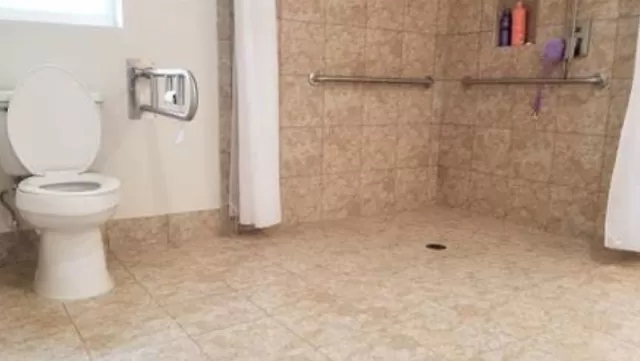Disability-Friendly Home: Easy Accessibility Enhancements. Joy Wagner, President and Founder of NeuroBalance Center, offers valuable insights into improving the accessibility and ease of navigation for individuals facing mobility challenges within our homes.
With her expertise and dedication to creating inclusive spaces, she emphasizes the importance of making necessary modifications to enhance mobility and independence. By implementing these recommendations and considering the specific requirements of individuals with mobility challenges, we can create homes that prioritize inclusivity, accessibility, and independence. Joy Wagner’s expertise and advocacy remind us of the importance of continually improving and adapting our living spaces to ensure they accommodate everyone’s needs, fostering an environment where individuals can thrive and navigate their homes with comfort and confidence.
Enhancing Autonomy and Enhancing the Quality of Life: Strategies for Creating Disability-Friendly Homes

Following its one-year postponement due to the COVID-19 pandemic, the 16th Summer Paralympics is set to commence in August 2021 in Tokyo, attracting viewers who eagerly support their favorite athletes.
Amidst the excitement and celebration, it is crucial to reflect upon the everyday obstacles encountered by individuals with disabilities within the confines of their own homes. Joy Wagner, RN, BSN, a distinguished figure as the President and Founder of the nonprofit NeuroBalance Center in Barrington, Illinois, presents her insightful perspectives on transforming residential spaces into environments that promote accessibility.
This article will delve into a plethora of innovative approaches—many of which do not necessitate extensive renovations—enabling you to create a disability-friendly home and thus augment the independence and overall quality of life for individuals with disabilities.
Commencing with the Kitchen: Empowering Independence through Accessible Culinary Spaces
In the realm of independent living, the ability to prepare food plays a fundamental role.
Recognizing this significance, Joy Wagner emphasizes that when contemplating home design for individuals with mobility disorders or aging family members, it is imperative to prioritize the kitchen area. If the need arises to replace current appliances, Wagner recommends considering ADA height appliances, as they offer a more user-friendly experience for individuals employing wheelchairs, scooters, or walkers. As she highlights, Bosch presents an extensive range of such appliances, providing an optimal solution to enhance accessibility within the kitchen.
Promoting Accessibility: Overcoming Barriers for Inclusive Living

Drawing from her personal experience as an individual diagnosed with multiple sclerosis (MS) almost twenty years ago, Wagner asserts that both public and private spheres harbor significant obstacles that impede individuals who rely on walkers, canes, or wheelchairs from fully engaging in activities and events.
In order to address this issue, Wagner emphasizes the importance of eliminating barriers and obstacles through inclusive measures such as building, remodeling, and equipping spaces to cater to diverse needs. Common household challenges, as she elucidates, encompass doorways lacking sufficient width for wheelchair access, inadequate lighting, and switches placed out of reach.
By addressing these concerns, we can create a more accessible environment that fosters inclusivity and empowers individuals to lead fulfilling lives.
Navigating the Carpet Challenge: Balancing Comfort and Accessibility
While area rugs and wall-to-wall carpeting can contribute to a cozy ambiance and aesthetic appeal, they can pose significant obstacles for individuals utilizing wheelchairs or walkers.
Conversely, slippery flooring surfaces present their own hazards. To strike a balance between comfort and accessibility, certain considerations need to be made. If you desire carpeting in your home, opt for a very low pile variety and ensure it is securely attached to the subflooring. Simultaneously, it is advisable to remove area rugs and replace slick polished hardwood or ceramic tile with high-traction, low-slip flooring options like vinyl. By implementing these measures, you can create an environment that provides both the comfort of carpet and the safety necessary for individuals with mobility devices to navigate with ease.
Breaking Down Barriers in the Bathroom: Ensuring Safe and Accessible Bathing

Safety during bathing is of utmost importance, as slippery tubs and shower floors can significantly increase the risk of slips and falls.
Therefore, creating a secure and accessible bathing experience is crucial. When considering upgrades, Wagner recommends paying close attention to the direction in which a shower door swings, ensuring it doesn’t hinder accessibility.
Moreover, she advises incorporating ample space within the shower area to accommodate a shower chair or other portable devices.
To enhance mobility and safety, it is beneficial to explore the availability of mobility-friendly showers at retailers such as Lowe’s and Bath Planet.
These showers are designed with thresholds of 1/2-inch or lower, allowing for seamless entry and accommodating the use of a shower chair. Additionally, a disability-friendly shower should offer sufficient room for individuals to turn around comfortably, while also featuring safety bars and a bench for sitting.
By prioritizing these considerations, individuals with mobility challenges can enjoy a bathing experience that is not only safe but also promotes independence and peace of mind.
*The information is for reference only.